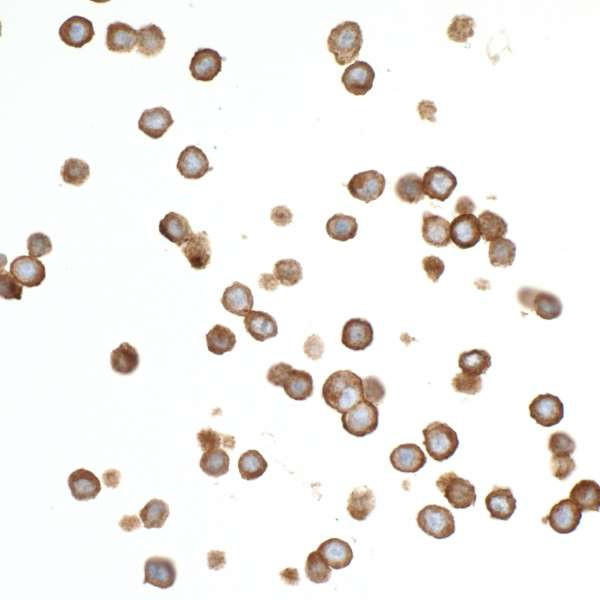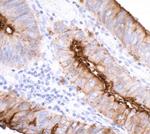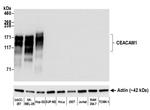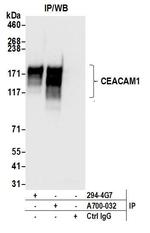Search Thermo Fisher Scientific
Invitrogen
CEACAM1/CEACAM5 Recombinant Rabbit Monoclonal Antibody (BLR032F)
Product Details
MA5-44259
Species Reactivity
Host/Isotype
Expression System
Class
Type
Clone
Immunogen
Conjugate
Form
Concentration
Purification
Storage buffer
Contains
Storage conditions
Shipping conditions
RRID
Product Specific Information
Epitope retrieval with citrate buffer pH6.0 is recommended for FFPE cell sections.
Target Information
Over-expression of CEA/CEACAM5 in tumors of epithelial origin is the basis of its wide-spread use as a tumor marker CEACAM1 expression is down-regulated in many tumors indicating a tumor-suppressive function. The anti-tumor effect may be due to inhibition of tumor angiogenesis, possibly by increased secretion of anti-angiogenic molecules from the cells. The function of CEA family members varies widely: they function as cell adhesion molecules, tumor suppressors, regulators of lymphocyte and dendritic cell activation, receptors of Neisseria species and other bacteria.
For Research Use Only. Not for use in diagnostic procedures. Not for resale without express authorization.
References (0)
Bioinformatics
Protein Aliases: antigen CD66; BGP-1; Biliary glycoprotein 1; Carcinoembryonic antigen; Carcinoembryonic antigen-related cell adhesion molecule 1; carcinoembryonic antigen-related cell adhesion molecule 1 (biliary glycoprotein); Carcinoembryonic antigen-related cell adhesion molecule 5; CD66a; CD66a antigen; CD66e; CEA; Meconium antigen 100; pan CEACAM; sCD66e; soluble CD66e
Gene Aliases: BGP; BGP1; BGPI; CD66e; CEA; CEACAM1; CEACAM5
UniProt ID: (Human) A6NE38, (Human) P06731
Entrez Gene ID: (Human) 634, (Human) 1048

Performance Guarantee
If an Invitrogen™ antibody doesn't perform as described on our website or datasheet,we'll replace the product at no cost to you, or provide you with a credit for a future purchase.*
Learn more
We're here to help
Get expert recommendations for common problems or connect directly with an on staff expert for technical assistance related to applications, equipment and general product use.
Contact tech support




